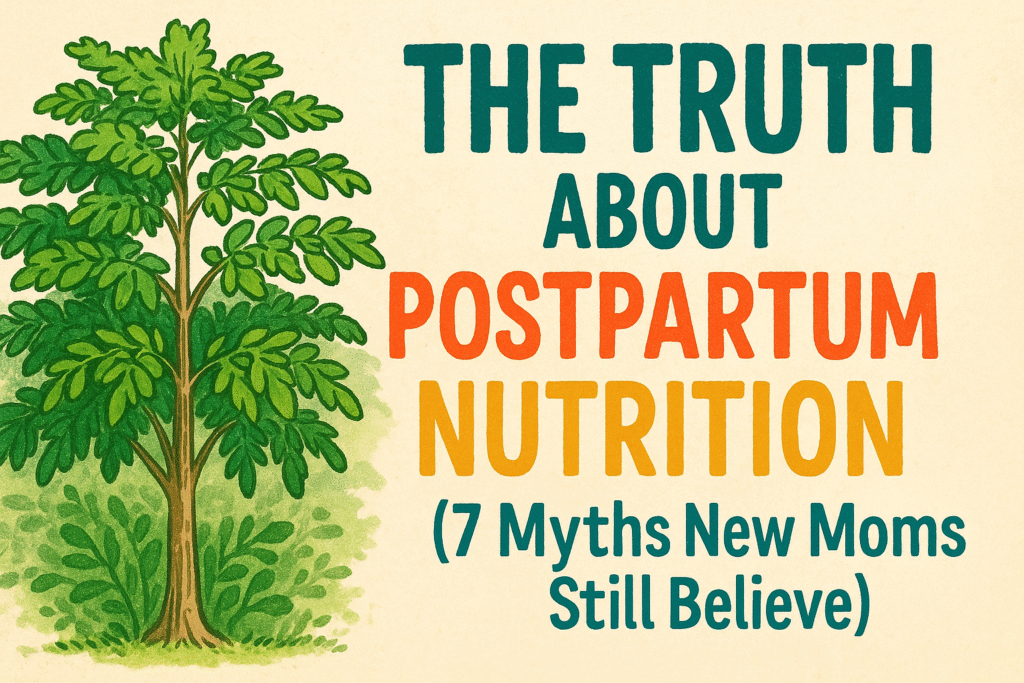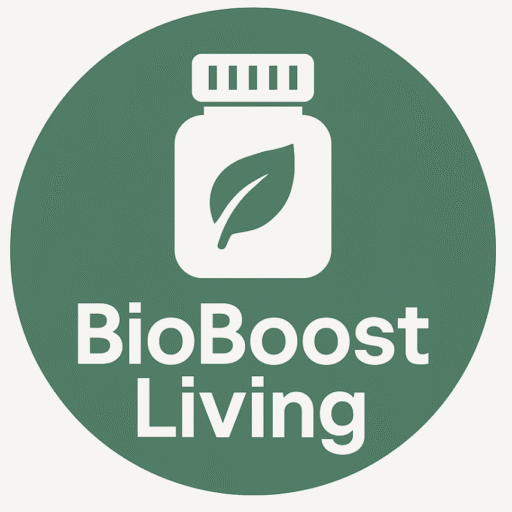(7 Postpartum Nutrition Myths New Moms Still Believe)
Bringing a baby into the world is exciting, but it also means big changes for a mother’s body. After giving birth, postpartum nutrition becomes very important for recovery and energy. However, new moms often hear all kinds of advice about what to eat, and much of it is confusing or even wrong. In fact, there are many myths out there about nutrition after childbirth. Let’s clear up the facts by debunking 7 common myths about postpartum nutrition so you know what’s true and what’s not.
Myth 1: “My diet doesn’t matter now that the baby is born.”
Some new moms think that once the baby is out, what they eat isn’t important anymore. This is a myth – your diet does matter after pregnancy. In fact, proper nutrition is crucial in the postpartum period because it supports healing, helps balance your hormones, aids in making breast milk (if you’re breastfeeding), and keeps your energy up during those sleepless nights. On the other hand, if you don’t get enough important nutrients (like iron and calcium), you might heal more slowly, feel more tired or “depleted,” and even have mood swings. In short, your body still needs good fuel after the baby is born – just as much as it did during pregnancy, if not more.
Myth 2: “Eating healthy only matters for the first few weeks postpartum.”
It’s common to assume that eating well is only crucial during the first few weeks after giving birth (while your initial wounds are healing). But this is not true – your body’s recovery and nutritional needs continue long after the early postpartum period. Deep healing and restoration can take many months, and in some cases years, for a new mother. The postpartum period extends far beyond just 6 weeks; some experts consider the first 6 months to a year as part of postpartum recovery. During this time, your nutrition remains a top priority as your needs shift. You still need plenty of protein, vitamins, and minerals to keep up your energy, stabilize your mood and hormones and support your overall health in the long-term. Bottom line: don’t stop paying attention to your diet after a few weeks – postpartum nutrition is a marathon, not a sprint.
Myth 3: “Taking my vitamin pills is enough, so I don’t need to worry about food.”
Some moms believe that if they just keep taking their prenatal vitamin or multivitamin, they have all the nutrients they need – regardless of what they eat. In reality, having a baby uses up a lot of your body’s nutrients, and you need to replace those by eating nutritious foods. Each pregnancy can deplete important stores of minerals and vitamins in the mother’s body, so relying only on a pill isn’t going to fully rebuild those reserves. Doctors do advise continuing your prenatal vitamin after delivery (especially while breastfeeding), but this should be seen as an extra “insurance policy” for your nutrition, not a substitute for a healthy diet. Vitamins and supplements can help fill in the gaps, but they are not absorbed as efficiently as nutrients from real food. So, while you should take your postnatal or prenatal vitamins as recommended, remember that a balanced diet – with plenty of protein, vegetables, fruits, whole grains and healthy fats – is still the main source of the nourishment your body needs postpartum.
Myth 4: “I need to start dieting right away to lose the baby weight.”
Many new mothers feel pressure to “bounce back” to their pre-baby body as soon as possible by going on a strict diet. But the truth is, trying to diet immediately after birth is not healthy for you (or for your baby, if you are breastfeeding). Postpartum is the time to heal and regain strength, not to drastically cut calories. In fact, if you’re breastfeeding, you actually need about 300 to 500 extra calories per day to support milk production – more than you needed during pregnancy! Health experts recommend that any weight loss after pregnancy should be slow and gradual, and they warn new moms not to rush into “crash” diets or extreme weight loss plans. The idea of quickly “bouncing back” is a myth perpetuated by diet culture that puts unnecessary pressure on women. Instead of obsessing over the scale, focus on nourishing your body so you can recover and have energy to care for your newborn. With time, gentle activity and a healthy diet, your weight will naturally readjust – there’s no need to starve yourself or start intense diets right after having a baby.
Myth 5: “Breastfeeding moms have to avoid spicy foods, sweets, or other ‘bad’ foods.”
You might hear that a breastfeeding mom must stick to a very bland, “clean” diet – for example, no spicy foods, no broccoli or beans (to avoid gas in the baby), and no treats like coffee or an occasional sweet. This is mostly a myth. In reality, there’s no blanket list of foods that every nursing mother must avoid. Eating spicy foods or cabbage won’t make your breastfed baby gassy or fussy; that’s a common misconception. Strong flavors in Mom’s diet can change the taste of breast milk a little, but they don’t cause harm – in fact, exposing your baby to different flavors through milk might even help them accept a variety of foods later on when they start solids.
Likewise, you don’t need some special, restrictive “breastfeeding diet.” As long as you eat a normal, balanced diet, your milk will be fine. Even things like caffeine or the occasional glass of wine can be okay in moderation – experts say moderate amounts (like one cup of coffee a day or a small drink once in a while) are generally safe if you follow guidelines and time it right. Of course, if your baby has a specific allergy, or reaction (for example, a dairy intolerance), you might need to adjust. But unless you notice a problem, new moms can enjoy a variety of foods while breastfeeding. There’s no need to guilt yourself into eating only plain crackers and boiled chicken – healthy variety is actually good for both you and baby.
Myth 6: “If I’m not breastfeeding, nutrition isn’t that important now.”
Some moms who use formula or are not breastfeeding might think that what they eat doesn’t matter as much, since the baby isn’t relying on their milk. This is false – your own body still needs good nutrition to recover and stay healthy after childbirth. Even if you’re not nursing, you have gone through pregnancy and delivery, which means your body has expended a lot of energy and nutrients. You might have lost blood (which uses up iron), and your tissues are repairing. You’re also likely running on little sleep, which can drain your energy.
Good food helps with all of this. In fact, medical experts stress that nutrition is always important, and even if you don’t breastfeed, your nutrient needs are still very high in the postpartum period. What you eat is a key factor in how you feel day to day as a new mom. You need plenty of protein, iron, calcium, vitamins and fluids to rebuild your strength. So even if formula is feeding your baby, don’t neglect yourself – eating a balanced diet will help you heal, keep your energy up, and simply feel better. Your health matters too, not just the baby’s.
Myth 7: “There’s one perfect postpartum diet plan I should be following (or I’m failing).”
With so many books, blogs, or even cultural traditions about what a new mom “should” eat, some mothers feel like they must follow a specific postpartum diet plan to recover properly. You might wonder if you’re doing it “wrong” if you’re not eating certain superfoods or following a strict regimen. Here’s the truth: there is no single “perfect” postpartum diet that works for everyone.
Every mom is different – what’s important is that you eat a variety of nourishing foods that give your body what it needs. There’s no magic menu or secret ingredient that all moms must have. In fact, experts emphasize that there’s no one-size-fits-all way of eating after having a baby; postpartum nutrition should be personalized to your needs, and the goal is to fuel and nourish yourself in whatever way works best for you.
If one mom loves smoothies and another prefers hot soups, both are fine as long as they’re getting nutrients. You haven’t “failed” if you’re not following some fancy diet plan you saw online. Postpartum is a challenging time, so it’s okay if your diet isn’t perfect – do the best you can, and remember that what you eat (or how your body looks) after having a baby does not determine your worth as a mom.
Focus on the basics: plenty of protein, healthy fats, fruits and veggies, whole grains and enough calories to keep you going. And most importantly, be kind to yourself. Taking care of a newborn is hard work, and your well-being is important. Eating in a way that makes you feel good and satisfied is the “right” postpartum diet for you.
Long-Term Postpartum Nutrition
It’s worth noting that the need for a good diet doesn’t disappear even after the so-called “fourth trimester.” In fact, some experts warn that if a mother’s nutrition and health are neglected, she can continue to feel the effects of postnatal depletion for years after giving birth. This shows why good nutrition is a long-term priority, not just something to think about in the first six weeks.
As your baby grows, continue to eat regular, balanced meals and stay hydrated. You are still rebuilding your strength and nutrient stores, and you deserve to feel your best as a mom. If you plan to have another child in the future, keeping up with healthy eating now will also help prepare your body for the next pregnancy. Think of it as investing in your own well-being for the long run – a well-nourished mom is better equipped to care for her family and herself.
How Partners and Caregivers Can Help
New moms shouldn’t have to do it all alone – and good nutrition is one area where partners, family, and friends can really make a difference. Partners and caregivers can support a new mother’s nutrition by helping with meals and reminders to eat and drink. For example, loved ones can prepare or bring easy, one-handed snacks that a mom can eat even while holding or nursing the baby (think a hard-boiled egg, a smoothie, a granola bar, or trail mix).
Little gestures like this ensure mom gets nourishment even on busy days. It’s also a great idea to keep a large water bottle within arm’s reach of the mother – especially during breastfeeding sessions – so she stays hydrated without having to get up.
Helping with cooking simple healthy meals, doing grocery runs for fresh fruits and veggies, or watching the baby for a few minutes so Mom can sit down and eat are all wonderful ways to support her. These acts of care not only provide physical nutrition but also emotional support, reminding the new mom that she is cared for, too. When partners and family share the load, it’s easier for mom to focus on healing and bonding with the baby without neglecting her own needs.
In summary, postpartum nutrition is all about helping new mothers heal and feel their best. By busting these myths and understanding the real facts, you can make informed choices that benefit both you and your baby. Remember: a well-nourished mom isn’t indulging herself – she’s fueling herself to be a healthier, happier parent. Take it one day (and one snack) at a time, and give your body the care it deserves.

Read next: Breaking Down the Myths About Keto Diets
